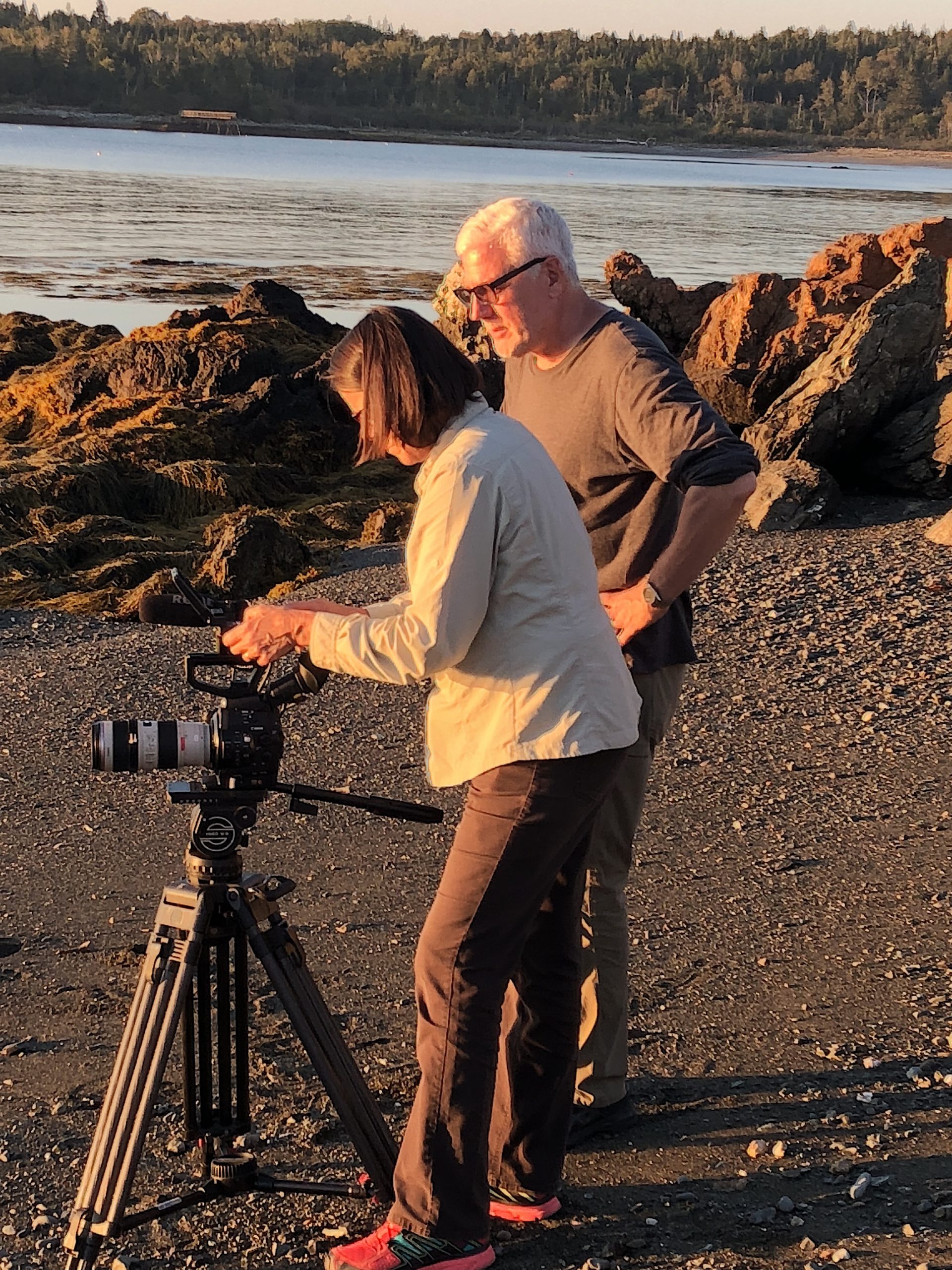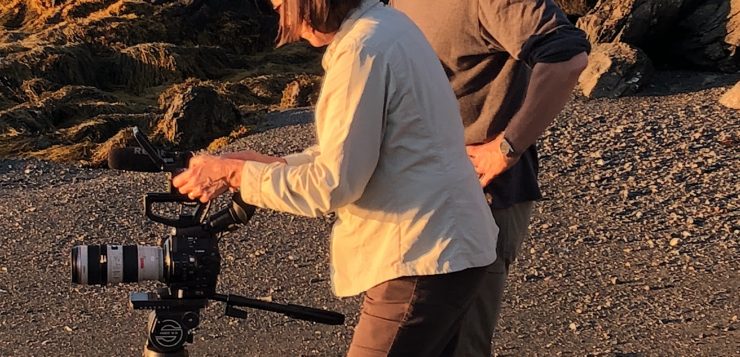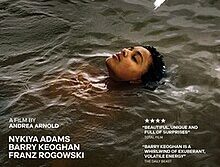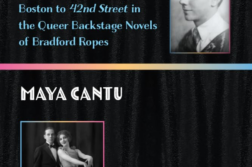T.J. PARSELL’S NEW FILM Invisible: Gay Women in Southern Music opened unofficially with a private screening in Nashville in February, cosponsored by the Human Rights Campaign, Nashville Pride, and WMOT Roots Radio (the largest Americana station in the U.S.). Well before the actual world premiere (and official selection at Frameline), the film project had created so much buzz that a one-night Nashville showing sold out weeks ahead of time.
When I spoke with T.J. the week before this first event, he was delighted that Invisible had generated ticket sales from as far away as Boston and L.A. Emmylou Harris, he said, had just called, looking for a few more tickets. “We were blown away that we sold out weeks in advance. Women are clamoring for this,” T.J. asserted. “But we also want to get beyond preaching to our choir, and appeal to audiences more generally. To do that, we need to be in the mainstream film festivals.”
Invisible’s fresh look at lesbian artists in the music industry is an important addition to what we know about homophobia and sexism in good-old-boy American culture. The documentary reveals the faces and struggles of both known and unfamiliar women who, we learn, are the real singer-songwriters behind mainstream country music hits. The idea for the film came from Bill Brimm, whose friendship with many of the women gave writer-director Parsell access to their time and trust. From Jess Leary and Kye Fleming to Pamela Rose, Maryann Kennedy, and Bonnie Baker—these are the women who kept their lesbian identities and relationships a secret until now in order to gain steady work in red-state Nashville.

The artists whose stories are told in the film are now gradually finding support and sympathy from lesbian audiences as they tour independently or as a group, playing the hits they wrote for mainstream radio. To raise funds to complete the film, T.J. brought a number of Invisible’s stars on an Olivia cruise in July 2019, screening a rough cut, and the response was so positive that more artists headlined on a second cruise this past January. Chely Wright has performed at the Ohio Lesbian Festival, and Dianne Davidson tours regularly in a show called “We’re Not Dead Yet” (with women’s music artists Jamie Anderson and Deidre McCalla). For all their loyalty to many out performers, lesbian festival audiences have rarely had the economic power to support more than a handful of touring artists year-round, an obvious contrast to the paycheck of commercial country music. Invisible’s point is that coming out in Nashville has a dollar cost. It’s a familiar tale in a homophobic society: the choice between making a living and living authentically. If we acknowledge that lesbians are everywhere, shaping even the most traditional soundtracks of Americana all the way back to Katherine Lee Bates, who wrote “America the Beautiful,” Invisible reminds us that bias against lesbians is far from gone, and that many of our best national artists remain unknown and unseen.
During my interview with T.J., he flipped the question of homophobia to one of sexism. “Two or three interviews into the project, I started to scratch my head and ask how much of what these women went through is because they’re gay—or because they’re women. Well, we let the audience decide. But it’s a searing indictment of the patriarchy that is country music—and also a microcosm of what’s wrong with our own country, and the world.”
Invisible shows us the powerful role that male allies can play in facilitating better public awareness of lesbian musicians. T.J. Parsell joins a welcome list of men who are actively archiving and celebrating lesbian artists: fair turnaround, as he points out himself. “For men of my age who came of age in the 1980s and lost many gay men friends, it was the women who stepped up for us, in such a huge way.” (There’s also J.D. Doyle, whose radio show Queer Music Heritage highlights lesbian musicians, and who recently donated his archives to the Library of Congress. Radio activists Brian DeShazor and Mark Torres have labored for years to broadcast, rediscover, protect, and store the hours of women’s music shows from the vault of Pacifica radio.) The efforts of such heroes stands in contrast to the regrettable misinformation about the women’s music movement in some LGBT sources, or the complete absence of lesbians in too many current “Stonewall at 50” exhibits.
As we approach the 45th anniversary of the National Women’s Music Festival, and the coming 50th anniversary of the Olivia music and travel company, we need many more allies to bring “invisible” artists to better national attention. Filmmaker T.J. Parsell is one gay man who brings a hard-hitting look at the once-closeted women whose country tunes have been cued up on our playlists all these years.
Bonnie J. Morris’ 17 books includeGirl Reel andThe Disappearing L. She teaches women’s history at UC-Berkeley.






